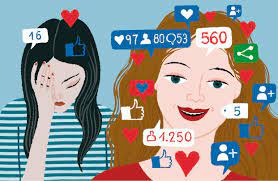I feel that TikTok is an excellent example of Checks on government power. I say this because banning TikTok sets a precedent for any social media to be effectively banned. Even though TikTok is run through Oracle servers, there is no real evidence that the Chinese government is stealing data. According to this article, "the Justice Department and a senior U.S. intelligence official say flatly that they have no direct evidence China has used TikTok for propaganda purposes in the U.S." So that leads to the question of why it is being banned. As you said, the argument that they are collecting data is also baseless due to how a social media company makes money. They have to collect data just like every other social media, and yet there's no direct evidence China has used TikTok for propaganda purposes in the U.S.
A theory helps explain real-world phenomena by providing a structured framework to identify patterns, establish cause-and-effect relationships, and predict outcomes. An example I can think of is if we observe someone someone trying to become a faster runner. We see that if they work out more, they will become a faster runner. By offering concepts and principles, theories help us interpret why events occur and how different factors are connected, allowing us to make informed decisions or predictions based on the insights they provide. Another example, rational choice theory can be used to explain voting behavior in elections. Suppose there is a low turnout in an election. In that case, people's rational choice theory might interpret this as people perceiving that the cost of voting, such as time and effort, outweighs the potential impact of their vote.
Another theory that I agree with is Promoting tolerance. America has its problems, but we are a nation of many different types of people who live together. I have visited NYC many times, and it's a great example of Promoting tolerance. There are many different types of people that live in NYC; however, they live next to each other side by side. Writing this post has made me think of how these theories can be applied to American daily life and how it's a real opportunity to just be born here.











